13 Foods You Might Want to Cross Off Your Healthy Shopping List
When shopping for healthy foods, it can be easy to reach for items that seem like they belong in your cart. However, some common grocery store staples may not be as healthy as they appear. These foods often contain hidden sugars, unhealthy fats, or artificial additives. It is important to be aware of what goes into your body, and avoiding these items can help improve your overall well-being.
This post may contain affiliate links, which helps keep this content free. Please read our disclosure for more info.
Sugary Breakfast Cereals
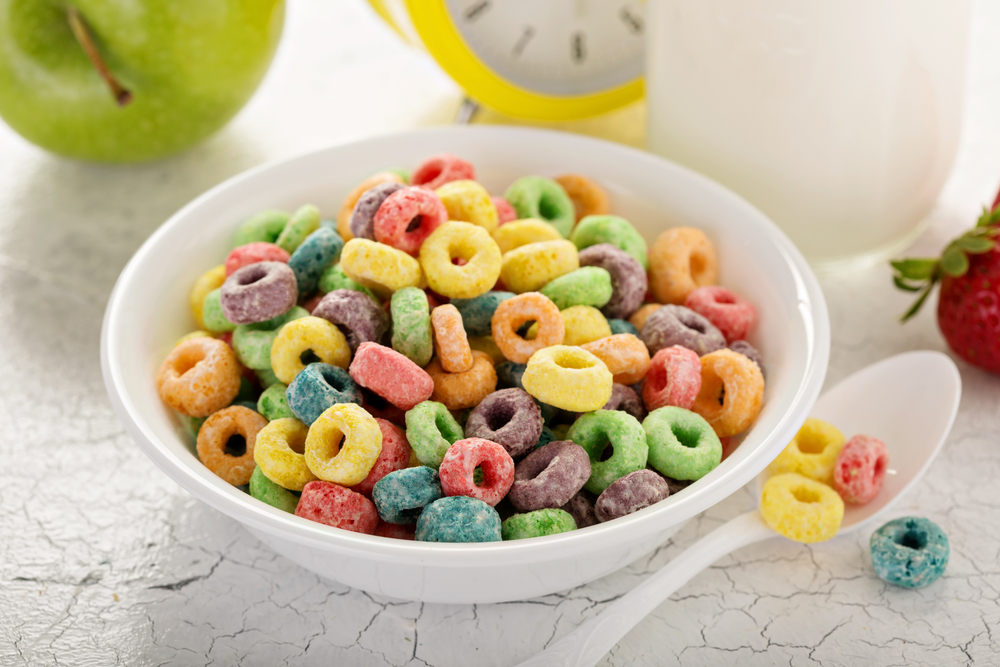
Breakfast cereals, often marketed as healthy, can be packed with sugar and artificial additives. These cereals can give you a quick burst of energy but lead to an energy crash later in the day. The high sugar content can also contribute to weight gain and increase the risk of chronic diseases such as diabetes. Instead of these sugary cereals, opt for whole grains or oats for a more nutritious start to your day.
Many cereals also lack sufficient fiber or protein to keep you full. This can lead to overeating later on, as your body craves more nutrients. While the colorful packaging and fun shapes may attract you, the nutritional value simply does not match up. Choosing whole food options with less sugar will support your overall health and energy levels.
Soda and Sugary Beverages

Soda and other sugary beverages provide little to no nutritional value while being high in empty calories. These drinks are loaded with added sugars that can spike your blood sugar levels and contribute to weight gain. The artificial sweeteners often used in sugar-free versions can also be harmful to your health, leading to potential digestive issues and cravings. Swapping these drinks for water, herbal teas, or naturally flavored beverages can help you stay hydrated and healthier.
Additionally, consuming sugary drinks regularly can increase your risk of developing conditions like heart disease and tooth decay. The high sugar content causes insulin resistance, which can lead to type 2 diabetes. A sugary beverage might be refreshing in the moment, but it does nothing for your body in the long run. Stick to water or fruit-infused drinks for a healthier choice.
Packaged Processed Meats
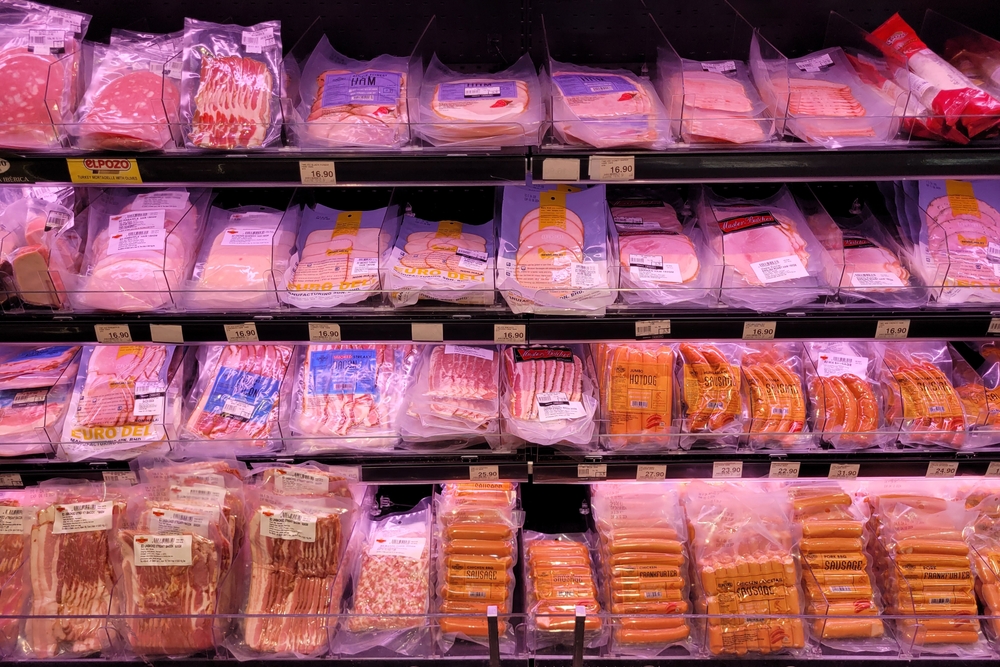
Packaged processed meats such as hot dogs, sausages, and deli meats are often high in sodium, preservatives, and unhealthy fats. These additives are linked to various health risks, including high blood pressure, heart disease, and even cancer when consumed in excess. While convenient, they offer little nutritional value, and their processing methods can destroy beneficial nutrients. It is better to opt for fresh, lean meats or plant-based protein sources for a healthier diet.
The preservatives used to extend the shelf life of processed meats often contain nitrates and nitrites, which have been shown to increase cancer risks. The high salt content can also negatively affect your heart health, causing fluid retention and increased strain on your cardiovascular system. For a healthier option, choose fresh meats or alternative protein sources such as tofu or beans.
White Bread and White Pasta
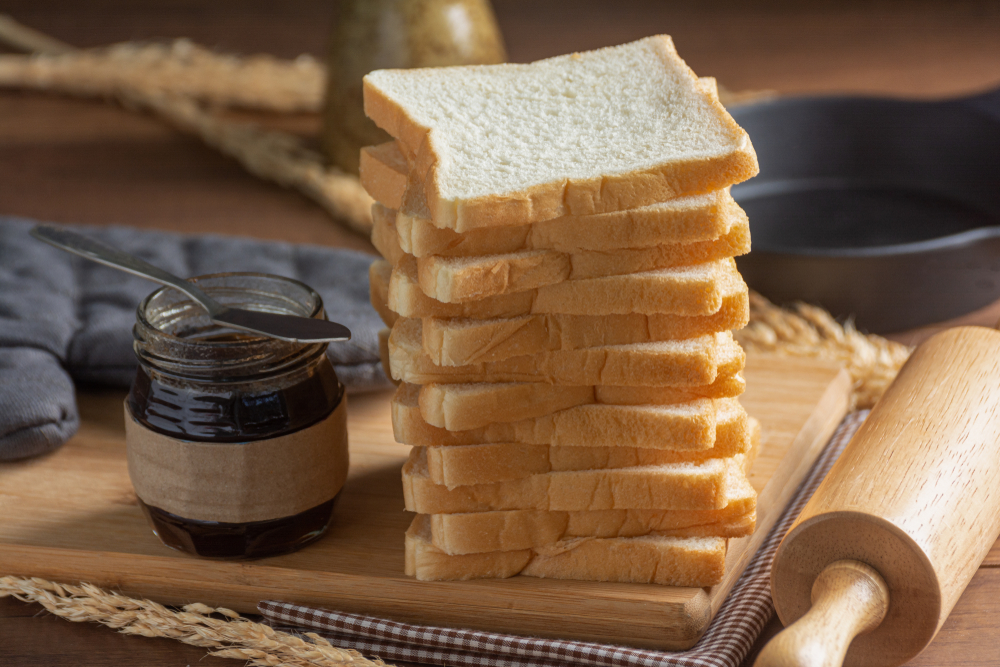
White bread and white pasta are made from refined grains that have been stripped of their nutrients, leaving behind mostly simple carbohydrates. These processed foods are digested quickly, leading to blood sugar spikes followed by crashes, which can affect your energy levels throughout the day. They are also low in fiber, which means they provide little support for digestion or satiety. Whole grain alternatives are a much better choice for maintaining steady blood sugar and supporting digestive health.
Refined grains lack essential vitamins and minerals found in whole grains, such as B vitamins, iron, and fiber. Over time, regularly consuming white bread and pasta can contribute to weight gain and increase your risk of type 2 diabetes. Opting for whole wheat, quinoa, or brown rice is a more nutritious choice that keeps you fuller for longer and supports better overall health.
Candy and Sweets

Candy and sweets are packed with refined sugar, artificial colorings, and flavorings, none of which contribute any real nutritional benefits. Consuming these foods regularly can lead to obesity, tooth decay, and an increased risk of type 2 diabetes. They often provide an immediate sugar rush followed by a quick crash, leaving you feeling tired and craving more sugar. Choosing fruit or dark chocolate as a sweet treat is a healthier way to satisfy your sugar cravings.
While they may taste delicious, sugary snacks can be addictive, making it harder to break free from unhealthy eating patterns. The lack of protein and fiber means that these treats do not keep you full, leading to overeating. Instead of reaching for a candy bar, try having a handful of nuts or a piece of fruit for a healthier snack that also offers nutrients your body needs.
Potato Chips and Snack Foods

Potato chips and other snack foods are often high in unhealthy fats, sodium, and empty calories. The process used to create these snacks strips away any nutritional value, leaving behind mostly fat and salt. These foods can lead to weight gain, high blood pressure, and increased cholesterol levels if consumed in excess. Healthier alternatives include air-popped popcorn or vegetable chips, which offer more fiber and fewer unhealthy additives.
While they may be easy to snack on, processed chips and snacks can also trigger overeating, as they are often made with addictive flavorings. The high salt content increases your thirst, leading to overconsumption of sugary drinks. Instead of processed snacks, try eating fresh vegetables with hummus or homemade baked chips for a more nutrient-dense option.
Frozen Meals and Microwave Dinners

Frozen meals and microwave dinners are convenient but often packed with sodium, preservatives, and unhealthy fats. While they may save time, they are typically low in the nutrients your body needs to stay healthy and energized. Many of these meals contain refined carbohydrates and little to no fresh vegetables. For a healthier option, consider meal prepping with whole foods or choosing fresh, homemade alternatives.
The preservatives used in frozen meals can be harmful to your health, contributing to chronic inflammation and increasing the risk of disease. Additionally, the high sodium content can cause water retention and raise your blood pressure. Opting for homemade meals made from fresh ingredients will provide more vitamins, minerals, and fiber while reducing your intake of unnecessary additives.
Fruit Juices

While fruit juice may seem like a healthy option, it is often stripped of the fiber and nutrients found in whole fruit. These juices are high in sugar, which can lead to weight gain and increase the risk of developing insulin resistance over time. The lack of fiber means that fruit juice does not help with digestion or provide lasting fullness. Whole fruits provide far more nutritional value, including fiber, which helps regulate blood sugar levels.
Drinking fruit juice also leads to spikes in blood sugar, which can be particularly harmful for those with diabetes or insulin resistance. Many commercial fruit juices contain added sugars, making them even less healthy. It is better to consume the whole fruit, which provides natural sugars and important nutrients in their most balanced form.
Pre-Packaged Salads with Dressing
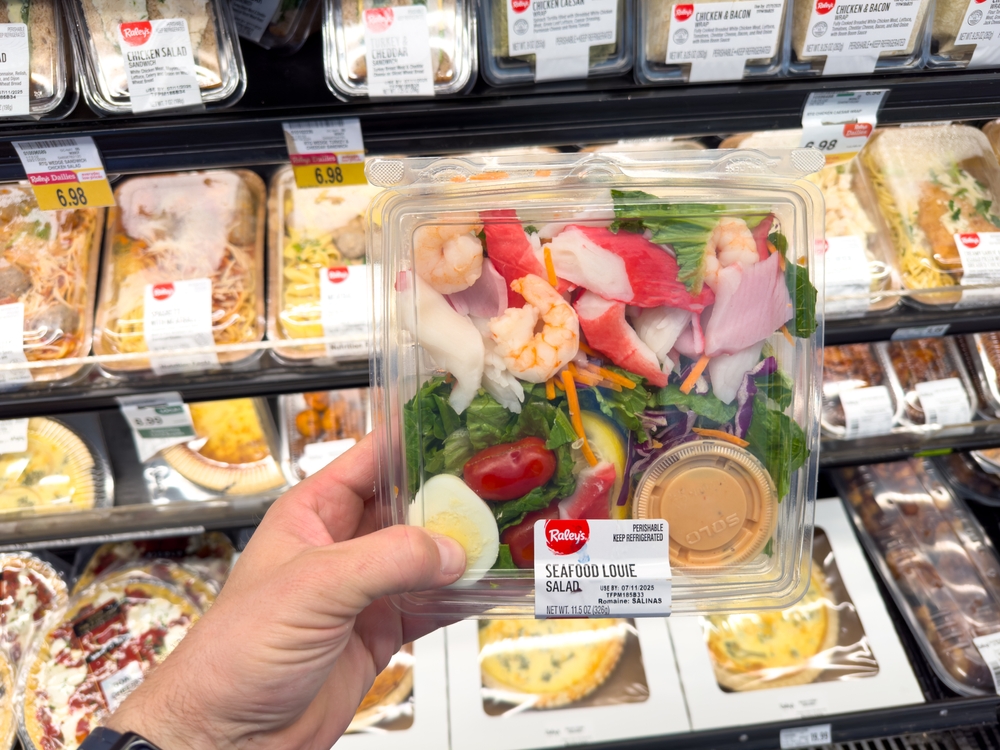
Pre-packaged salads may seem like a healthy option, but many are loaded with high-calorie dressings and processed toppings. These salads often come with unhealthy additives such as sugary dressings, bacon bits, and croutons, which can turn a simple meal into a calorie bomb. While the greens themselves are a good source of fiber and vitamins, the added ingredients can overshadow their health benefits. Preparing your salad with fresh ingredients and homemade dressing will give you full control over the nutritional content.
The packaged salads also often lack the protein and healthy fats needed to make the meal balanced. With the inclusion of processed ingredients, these salads can be high in sodium and unhealthy fats. By swapping pre-packaged options for a homemade salad, you can enjoy a much healthier meal that is both filling and nutritious.
Margarine and Other Artificial Butters

Margarine and artificial butters are often made from refined oils and contain trans fats, which can raise bad cholesterol levels and increase the risk of heart disease. While marketed as a healthier alternative to butter, these spreads can be more harmful to your health due to the hydrogenation process used to create them. Trans fats have been linked to chronic conditions such as diabetes, stroke, and heart disease. Opt for natural butter or plant-based spreads made from healthy fats like avocado or olive oil.
The high amount of unhealthy fats in margarine contributes to inflammation in the body, which can affect joint health and lead to other chronic issues. Many margarine varieties also contain artificial additives and preservatives, which further diminish their nutritional value. Natural, whole-fat options are always the better choice for your heart health and overall well-being.
Ice Cream and Other Sugary Desserts

While ice cream and sugary desserts are popular treats, they are often packed with sugar, unhealthy fats, and little to no nutritional value. These desserts can spike your blood sugar levels, contributing to weight gain and the development of insulin resistance over time. The high sugar content also negatively affects your dental health, leading to cavities and tooth decay. Healthier alternatives include frozen yogurt or dairy-free ice cream made with natural sweeteners.
Ice cream is also high in calories, which can lead to overeating and poor dietary habits when consumed regularly. Many commercially available ice creams contain artificial flavors and preservatives that offer no real benefit to your health. Choosing healthier dessert options like fruit sorbets or homemade banana ice cream provides more nutrients while still satisfying your sweet tooth.
Flavored Yogurts
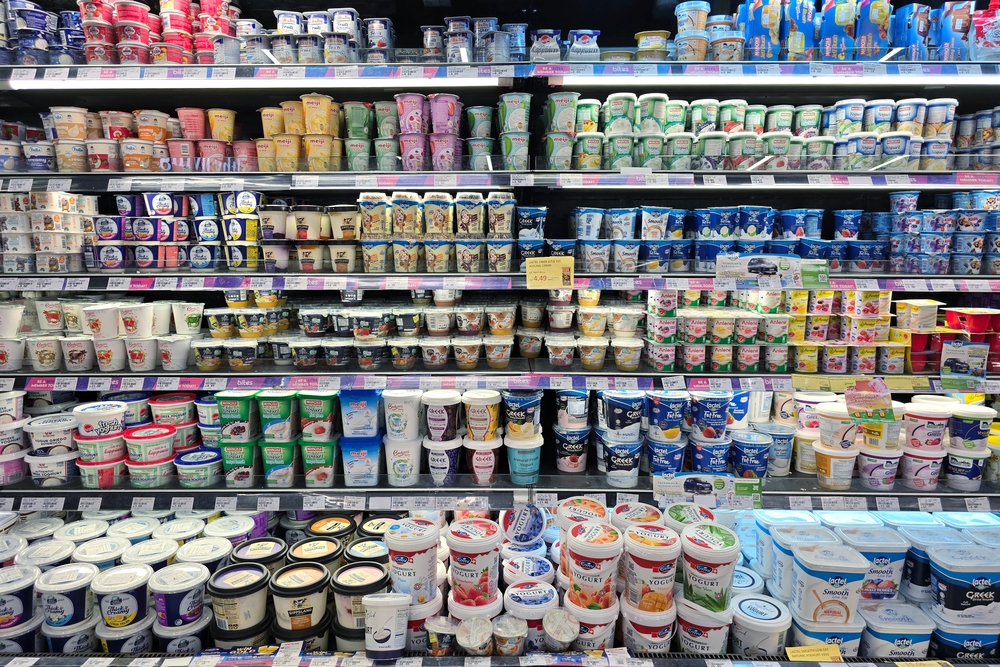
Flavored yogurts may seem like a good source of probiotics and calcium, but many are filled with added sugars and artificial flavorings. These added sugars can quickly cancel out the health benefits of the yogurt, contributing to weight gain and an increased risk of diabetes. Many commercial brands also contain additives like food coloring and preservatives, making them less healthy. Opting for plain Greek yogurt and adding fresh fruit or a drizzle of honey provides a much more nutritious option.
The low-fat versions of flavored yogurts are often loaded with sugar to improve taste, making them no better than sugary snacks. While yogurt is a good source of protein and probiotics, the flavored varieties undermine its health potential. Switching to unsweetened yogurt is an easy way to cut out unnecessary sugar while still enjoying the benefits of this dairy product.
Frozen Pizza

Frozen pizza can be tempting due to its convenience, but it is often high in sodium, saturated fats, and refined carbohydrates. The crust is typically made from refined flour, which lacks the nutrients found in whole grains. Additionally, the cheese and processed meats used as toppings add excess fat and sodium. Choosing a healthier alternative, such as a homemade veggie pizza with a whole wheat crust, can provide more nutritional value.
The sodium content in frozen pizzas is particularly concerning, as too much salt can raise blood pressure and strain the heart. The preservatives used to extend shelf life are also not beneficial to your health. Making pizza at home with fresh ingredients ensures that you can control the nutritional content while still enjoying a satisfying meal.
This article originally appeared on Avocadu.
